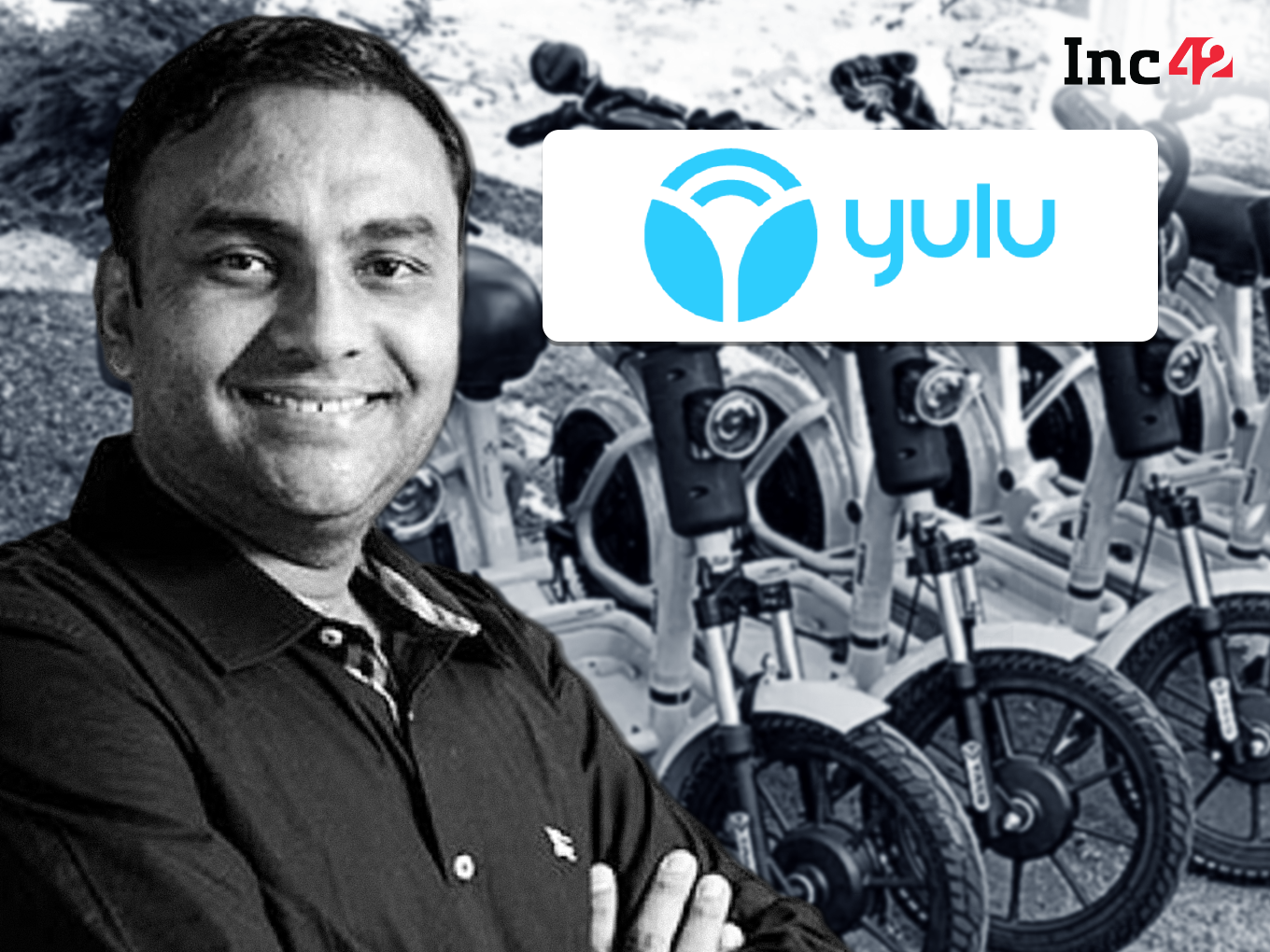Emobility startup Yulu saw its consolidated net loss widen 71% year-on-year (YoY) to INR 94.9 Cr in the financial year 2022-23 (FY23) as the company’s expenses jumped with the expansion of its battery swapping infra and increasing headcount.
The startup had managed to lower its loss in FY22 to INR 55.5 Cr on an operating revenue of INR 29 Cr. However, Yulu’s bottom line was hit in FY23 despite an almost 44% YoY jump in its operating revenue to INR 41.7 Cr.
Founded in 2017 by Amit Gupta, RK Misra, Naveen Dachuri and Hemant Gupta, Yulu provides emobility solutions in cities like Bengaluru, Mumbai, and Delhi NCR. It also offers an AI-enabled battery-as-a-service (BaaS) platform to its electric vehicle users.
The startup earns a majority of its operating revenue from the EVs provided on rent to daily commuters and last-mile delivery executives. The income from this major bucket increased almost 31% YoY to INR 38 Cr.
Yulu’s income from the supply of manpower services rose to INR 3.8 Cr in FY23 from a mere INR 9K in the previous year.
Including interest income and other non-operating income, Yulu’s total revenue stood at INR 46.6 Cr during the year under review as against INR 30.5 Cr in FY22.
Zooming Into Expenses
Yulu reported a total expenditure of INR 140.1 Cr in FY23, a sharp 60.5% increase from INR 87.3 Cr spent altogether in the prior fiscal.
Cost of Operations: The cost of running its operations more than doubled to INR 31.9 Cr in the reported period from INR 12.7 Cr in FY22.
In that, battery charging cost jumped 730% YoY to INR 13.3 Cr. This increase was in line with the company’s expanding battery swapping infra.
In September 2022, Yulu raised $82 Mn in its Series B funding round led by the US-based mobility technology company Magna International while also forging a partnership with the latter to expand its battery charging and swapping infra. At the time, Yulu said it was working on setting up 1,000 Yuma swapping stations for its EV users in the next 12 months.
On the other hand, the consumption of spares contributed INR 9.8 Cr to the expenses, which almost tripped YoY.
It must be noted here that Yulu also increased the number of vehicles in operations in FY23. It also launched two new vehicle models – Miracle GR and DeX GR – in February 2023. The other costs in this bucket include cost incurred in transporting vehicles, in repair and maintenance, and tech and infra.
Employee Cost: Yulu’s employee benefit expense was the single biggest contributor (over 48%) to its total expenses during the period. The spending in this bucket rose 65.6% to INR 67.5 Cr in FY23 from INR 43.1 Cr in the previous year.
In that, Yulu spent INR 55.3 Cr on salaries and wages as against INR 36.4 Cr in FY22.
The startup also spent INR 4.6 Cr towards ESOPs in the reported year, which increased from INR 2.5 Cr in FY22.
Depreciation & Amortisation Expense: Yulu posted a 14.5% YoY dip in its depreciation and amortisation expense in FY23 to INR 15.3 Cr.
Office Rent: Yulu’s expenditure on office rent grew over 48% YoY to INR 4.9 Cr.
It is pertinent to note that Yulu is further bolstering its operation this year. With last-mile delivery executives as its primary target group, the startup partnered with quick commerce delivery platform Zepto to expand in the hyperlocal delivery category in Bengaluru, Mumbai, Delhi, and Gurugram.
Recently, Yulu also expanded to the retail segment with the launch of new low-speed escooter Yulu Wynn, priced at INR 55,555.
The post title=”Yulu’s FY23 Net Loss Widens 71% To INR 94.9 Cr As Business Expands” href=”https://inc42.com/buzz/yulus-fy23-net-loss-widens-71-to-inr-94-9-cr-as-business-expands/”>Yulu’s FY23 Net Loss Widens 71% To INR 94.9 Cr As Business Expands appeared first on Inc42 Media.



![[CITYPNG.COM]White Google Play PlayStore Logo – 1500×1500](https://startupnews.fyi/wp-content/uploads/2025/08/CITYPNG.COMWhite-Google-Play-PlayStore-Logo-1500x1500-1-630x630.png)